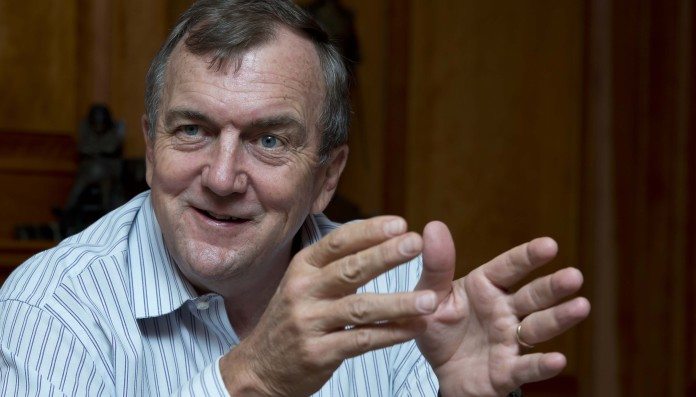
BARRICK Gold CEO, Mark Bristow, made short work of negotiations with the Tanzanian government in an effort to end its near two-year dispute with Acacia Mining.
The company announced today a proposed agreement in which the government and Acacia shareholders will share the proceeds from Acacia’s operations on a 50/50 basis, sweetened with a $300m upfront payment by the company to the state.
Bristow was installed at Barrick on January 1 following the merger of his company, Randgold Resources with the Canadians, announced in September. One of his immediate tasks was to solve the dispute that erupted in 2017 between Acacia Mining, a UK-listed company in which Barrick has a 63.9% stake, and the Tanzanian government.
The dispute was over alleged under payment of taxes worth billions of dollars stretching back two decades. Evidence to support the allegations of under payment has not yet been produced by the government.
The Tanzanian government halted gold-in-concentrate exports severely handicapping Acacia’s income and leading to the mothballing of underground mining at Bulyanhulu, one of its mines. Whilst Acacia recovered financially somewhat in 2018, it was clear a new agreement with the government was in order so it could to continue to operate optimally.
The terms of the proposed deal are the creation of a local company through which the economic benefits of Acacia’s operations can be shared on a 50/50 basis between Acacia’s shareholders and the government. The government’s share would be paid in the form of royalties, taxes, and a 16% free-carried interest in the Tanzanian operations.
In addition, a payment of $300m to the Tanzanian government will be made by Acacia in compensation for the alleged under payment of taxes, to be settled over time on terms to be agreed by the parties. This agreement mirrors closely the proposal that Barrick executive chairman, John Thornton, made to the Tanzanians after a meeting with President John Magufuli in October 2017.
“Significant amounts of real value have been destroyed by this dispute and, in Barrick’s view, this proposal will allow the business to focus on rebuilding its mining operations in partnership with their respective stakeholders, and most importantly long-suffering investors, including Barrick,” said Bristow in a statement.
However, in order that the proposal become effective it must be first approved by Acacia’s minority shareholders and the Government of Tanzania.
Acacia Mining said in a separate announcement that while it noted the announcement of agreement, it had “… not yet received any proposal from Barrick regarding a comprehensive resolution of the company’s disputes with the GoT [Government of Tanzania]. Any proposal received by Acacia will be subject to review by the independent committee of the Acacia board of directors”.
It’s unknown how long this would take, but commenting following the publication of its full-year results presentation on February 11, Acacia said it could take three months for the independent committee to assess the proposal put to it by Barrick Gold and make a recommendation to minority shareholders. That was provided the process went without a hitch, according to Jaco Maritz, CFO of Acacia Mining.
The need for a speedy agreement will be felt most keenly by Acacia employees who have been imprisoned without prospect of bail on unsubstantiated charges of corruption by the Tanzanian government.










